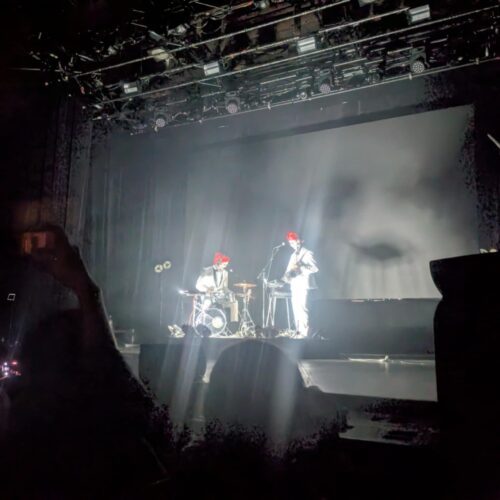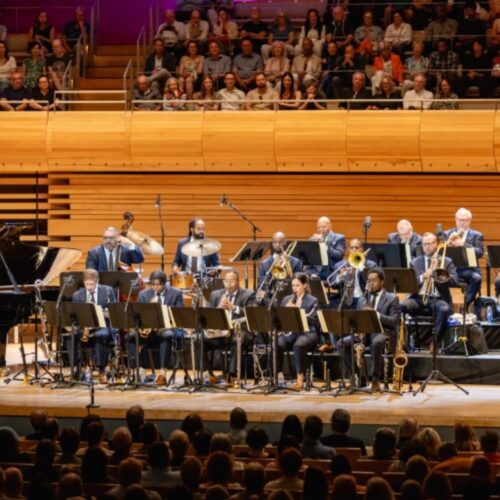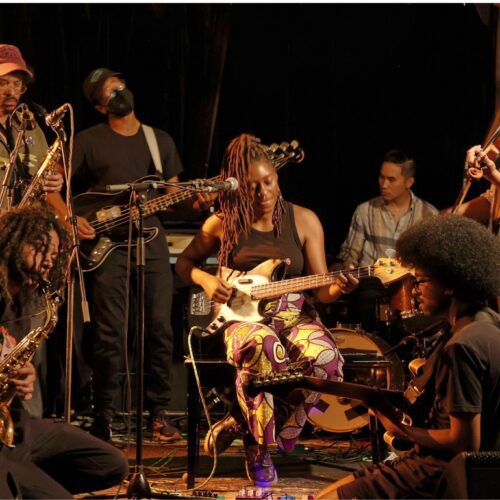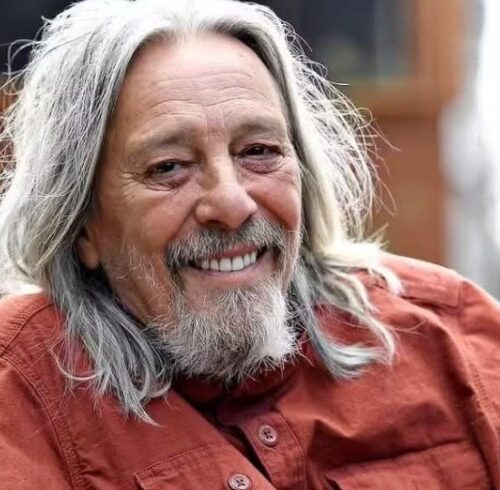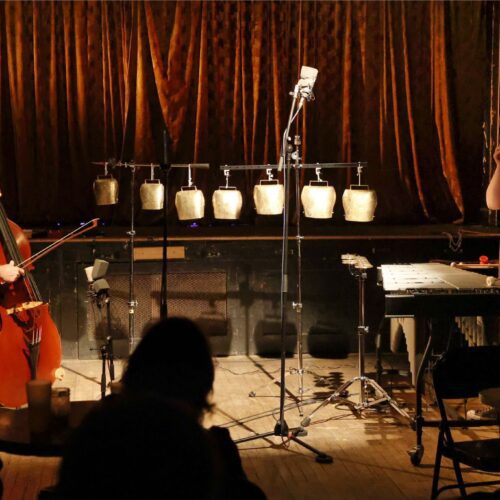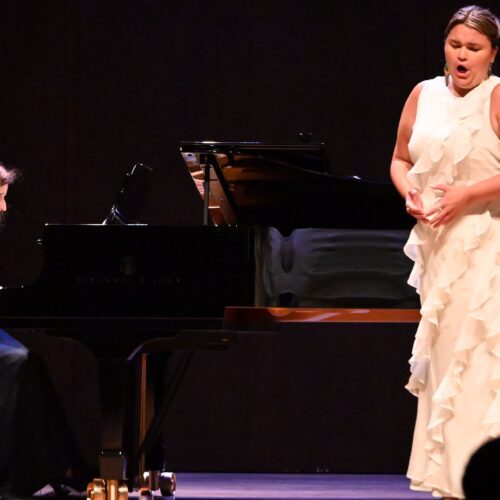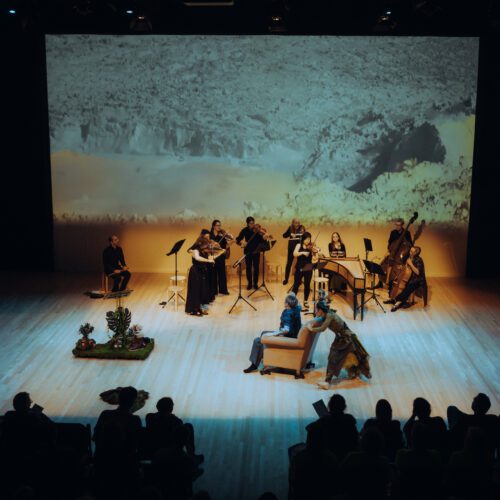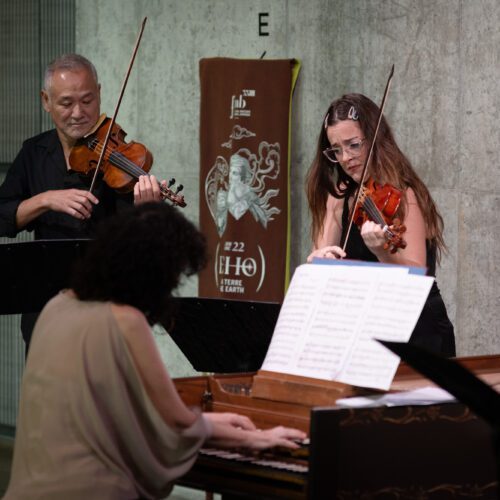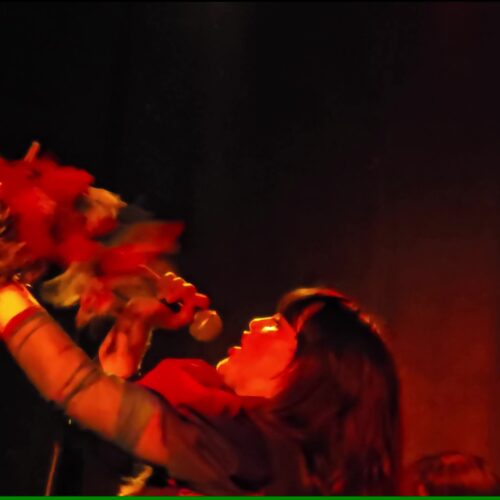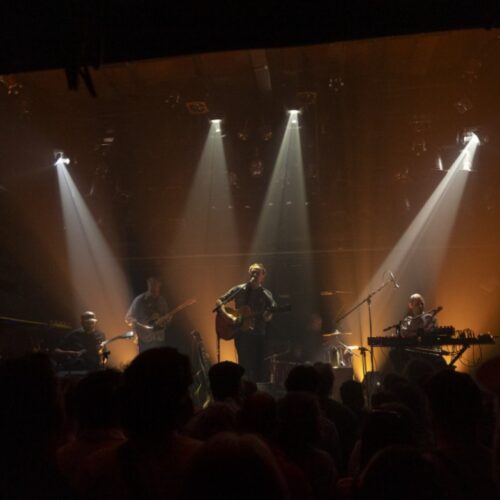It’s become a cliché, but sometimes clichés just come to life. All you had to do was stroll through the corridors of Salle Wilfrid-Pelletier to understand and hear that the majority of the 3,000 spectators were Spanish-speaking, most of them Mexicans, who had come to listen to one of their artists who best embodies the soul of this great country.
Natalia Lafourcade was back at FIJM for the second year running, but with a radically different concert. In 2024, she presented her album De Todas Las Flores, accompanied by a group of brilliant musicians. This time, for her Cancionera tour, the title of her most recent album, she presented herself alone, with an amplified classical guitar and a bottle of mezcal on a small table, just to be a singer.
Natalia Lafourcade is an exceptional artist. She always takes unpredictable paths. The album Cancionera, which I reviewed in our pages, is a highly polished album, with some fifteen musicians, which modernizes traditional Mexican and Latin styles in a very subtle way. But, in this ultra-intimate concert, Natalia largely abandons this album, keeping at most two pieces, and offers us in exchange a mix of songs that sum up her career, as well as traditional songs from her country.
I confess: at first, I was surprised, as I love the highly sophisticated arrangements that Natalia and her director, Adan Jodorowsky, make as a group. But, like the vast majority of the audience, I was won over by this stripped-down concert, which gave way to the voice, soul and emotions of this extraordinary artist, who was awarded the Jazz Festival’s Antonio-Carlos Jobim Prize for her contribution to “world” music at the end of the concert.
Whether with the songs De Todas Las Flores, Pajarito Colibri, La Soledad y el Mar, Mexicana Hermosa, or with her reinterpretations of La Llorona, La Bamba and Cucurucu Paloma, Natalia Lafourcade took us deep into Mexican culture and her home region of Veracruz. And shared it with the crowd, encouraging everyone to sing along. The longer the concert went on, the more people sang around me.
Her classical guitar playing sometimes reminded me of Texan Willie Nelson or Uruguayan Jorge Drexler, with whom she often collaborated. Her playing filled the musical space very well. And that voice! It seems to me that it’s becoming more confident, more assertive, more emotional.
Natalia Lafourcade also spoke to us, largely in Spanish, about her love for Mexico, the sea and solitude, “which sometimes gives great ideas, but also terrible thoughts”. This tour is also a way for her to celebrate her fortieth birthday, a sort of time for taking stock.
Natalia Lafourcade loves her country, its culture and landscapes, but she’s also aware of its problems and inequalities. She reminded us of this when she finished her concert with El Derecho de Nacimiento, a song written in 2012 in support of a student movement for greater social justice.
Natalia Lafourcade is whole and complete. A concentrate of soul! And the audience returned the favor.
We’ll be back tonight for a second concert.
Photo credit: Émanuel Novak-Bélanger



